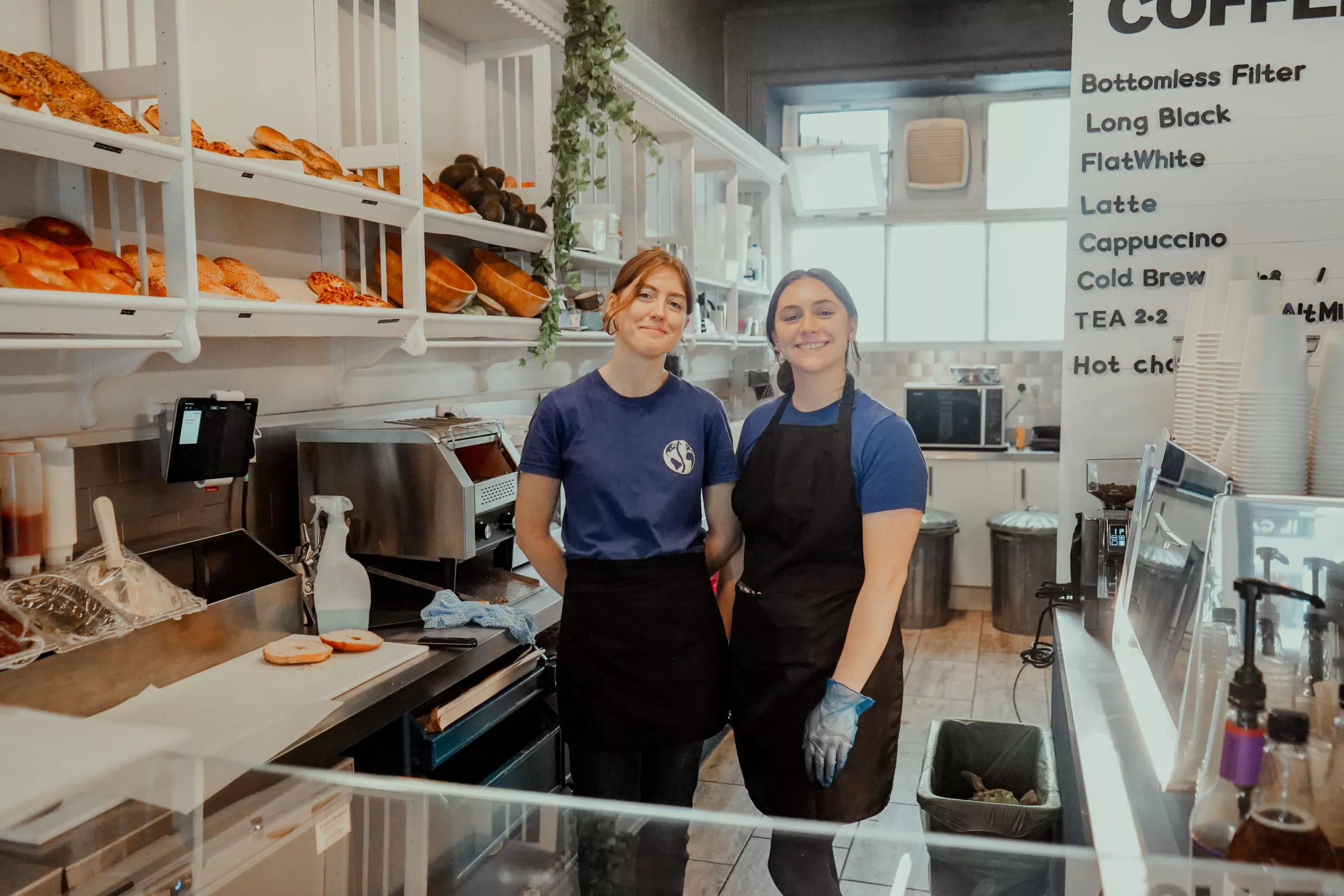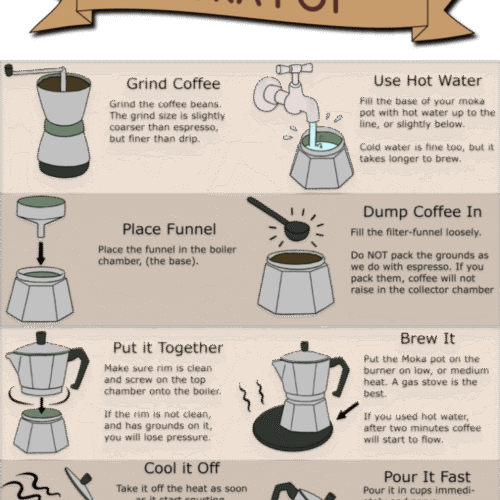To start a coffee shop, secure funding and choose a strategic location. Next, develop a solid business plan and obtain necessary permits.
Embarking on the journey of opening a coffee shop is both exhilarating and demanding. As a budding entrepreneur, your first step is to research the coffee industry and understand your target market. Crafting a thorough business plan is imperative; it outlines your vision, budget, and detailed strategy.
This foundational document will not only guide your decisions but also attract investors. Selecting the right location is critical; it should be visible, accessible, and in an area with high foot traffic. Ensure you have the funding to cover initial costs, which may involve loans or investment capital. Equipping your shop with quality brewing machines and creating a cozy ambiance will set you apart from competitors. Lastly, navigating the process of acquiring all the necessary permits and licenses is crucial for a legally compliant operation. With these steps, you’ll transform your coffee shop dream into a bustling reality.

Credit: www.crimsoncup.com
Crafting Your Coffee Shop Vision
Dreaming of starting your own coffee haven? A clear vision sets the stage for success. Whether you envision a cozy corner shop or a bustling urban café, pinpointing your unique concept is key. Let’s dive into shaping your dream coffee shop, from identifying your niche to choosing a magnetic brand identity.
Identifying Your Niche
Every great coffee shop has something special. What’s yours? Uncover what makes your cafe stand apart. Consider these factors:
- Location: Busy streets attract more foot traffic.
- Menu: Offer unique blends or exotic pastries.
- Atmosphere: Create a memorable ambiance.
- Community events: Host open mics or art shows.
Choosing A Name And Brand Identity
A strong name captures the essence of your coffee shop. It should be memorable, easy to say, and reflect your niche. Your brand is your promise to your customer. It conveys the experience they can expect.
When creating your brand identity, think about:
- Logo: Design a logo that stands out.
- Colors: Pick colors that feel welcoming.
- Typeface: Choose fonts that match your vibe.
Market Analysis And Planning
Embarking on the coffee shop journey demands a deep dive into ‘Market Analysis and Planning’. This stage forms the backbone of your coffee business, where data and strategy intermingle to guide your decisions. Before you brew your first batch or serve your first customer, understanding your market, competition, and business structure is crucial.
Studying Local Demographics
First and foremost, know your potential customers. Your success hinges on catering to the local population’s needs. Gather data on age, income, lifestyle, and coffee preferences. Use this to tailor your offerings to the community’s palate.
- Age distribution
- Income levels
- Lifestyle trends
- Coffee consumption patterns
Analyzing Competitors
Next, scrutinize your competition. Make a list of existing coffee shops in your area. Visit them as a customer and note what they do well and where they lack. Compare their menus, prices, services, and customer footfall. This insight directs you towards your unique value proposition.
| Coffee Shop | Strengths | Weaknesses | Opportunities |
|---|---|---|---|
| Cafe Bean | Cozy ambiance | Limited menu | Specialty drinks |
| Java Wave | Strong branding | High prices | Loyalty programs |
Creating A Business Plan
A formidable business plan is your roadmap. It encompasses your market research, financial estimates, and strategic planning. Your plan should highlight your vision, mission, and the steps to financial success. Remember, a comprehensive business plan appeals to investors.
- Executive Summary
- Company Description
- Market Analysis
- Organization and Management
- Marketing and Sales Strategy
- Funding Request
- Financial Projections
Financial Considerations
Turning a dream of owning a coffee shop into reality involves key financial decisions. Let’s focus on the money matters that can make or break your coffee business.
Estimating Start-up Costs
Understanding the initial investment is crucial for a smooth launch. Break down expenses into categories:
- Rent: Secure a prime location for customer access.
- Equipment: From espresso machines to grinders, get quality tools.
- Renovations: Create a welcoming environment.
- Inventory: Stock up on beans, milk, sugar, and more.
- Licensing: Obtain all necessary permits and insurance.
- Marketing: Invest in branding and initial promotion.
The total should reflect a clear picture of start-up costs.
Exploring Funding Options
Capital is key. Various sources can finance your coffee dreams:
| Funding Source | Details |
|---|---|
| Personal Savings | Use own funds to maintain control. |
| Bank Loans | Traditional loans with varied interest rates. |
| Investors | Exchange equity for investment. |
| Crowdfunding | Raise funds online from multiple people. |
Choose the option that suits your business plan and risk comfort.
Developing A Pricing Strategy
Price points affect sales and profit. Consider these factors:
- Determine cost of goods sold (COGS).
- Analyze competitor pricing.
- Balance quality and affordability.
- Adjust for desired profit margin.
Regular reviews help stay competitive and profitable.

Credit: texascoffeeschool.com
Location, Location, Location
Finding the perfect spot for a new coffee shop sets the stage for success. The right location can attract a steady flow of coffee lovers and help establish your café as a community cornerstone. Consider foot traffic, visibility, and the local atmosphere when choosing your spot. It’s not just about finding a space; it’s about finding the right space.
Selecting The Right Spot
Choosing a winning location involves several key factors. Think about these as you search:
- Demographics: Who lives in the area? Match your target audience.
- Competition: Scout for nearby cafés. A unique offering helps you stand out.
- Accessibility: Easy access increases customer traffic. Look for public transit links.
- Parking: Is there convenient parking? Customers value easy stops.
- Visibility: A visible spot captures more walk-ins.
Analyze these factors with tools like Google Maps and local market data. Visit potential sites at different times to gauge traffic patterns.
Lease Negotiations And Permits
Negotiating a lease involves understanding terms that affect your business. Get familiar with:
| Lease Term | Monthly Rent | Rent Increases | Maintenance Responsibilities |
|---|---|---|---|
| Duration of lease | Cost per month | Scheduled hikes in rent | What you versus landlord handle |
Seek legal advice for lease contracts. Lawyers can find spots to save you money and trouble. Secure necessary permits early. Local regulations dictate what permits and inspections you need. Plan for delays in these processes. Start early and track your progress meticulously.
Designing A Welcoming Space
Your coffee shop’s ambiance can turn first-time customers into regulars. A welcoming space invites people in and makes them stay. It’s not just about serving the best espresso. Your shop’s design plays a key role in customer experience. Let’s discuss creating a space where customers and baristas thrive.
Interior Layout and DecorInterior Layout And Decor
Every corner of your coffee shop must be Instagram-worthy. Think cozy yet spacious. Comfortable seating and warm lighting are key. Create areas for both quick visits and those who want to linger. Use natural materials. Wood and plants make people feel at home.
- Choose colors that reflect your brand but also soothe the senses.
- Arrange furniture to encourage conversation but allow for privacy.
- Create a feature wall with artwork or a logo for a bold statement.
Efficient Workflow For Baristas
An efficient barista area means quicker service and happier customers. Plan your counter space. Baristas need room to move freely. They need access to equipment with ease. Keep high-use items like cups and lids within reach. A smooth workflow prevents bottlenecks.
- Design the layout to minimize cross-traffic among staff.
- Place espresso machines, grinders, and sinks strategically.
- Ensure there’s ample space for order prep and pickup.
The Heart Of The Cafe: Coffee And Menu
Imagine walking into a coffee shop where the aroma of freshly ground coffee beans greets you. This experience is the essence of any successful cafe. A coffee shop’s heart beats in its coffee quality and the menu offerings. Exceptional coffee paired with a compelling menu creates memorable experiences for patrons. This section explores the selection of coffee beans, choosing the right equipment, and designing a menu that entices a broad range of customers.
Curating Coffee Beans And Equipment
Selecting high-quality coffee beans is crucial for a cafe. Factors such as the origin, roast profile, and blend affect the flavor. Use a table to compare bean characteristics:
| Origin | Flavor Profile | Roast Type |
|---|---|---|
| Colombia | Nutty, Fruity | Medium |
| Ethiopia | Floral, Citrus | Light |
| Indonesia | Earthy, Spicy | Dark |
Equally important to beans is the right equipment. Key items include:
- Espresso machine – Heart of coffee making.
- Grinders – For consistent grind size.
- Brewers – For varied brewing methods.
Crafting A Compelling Menu
Designing a diverse menu is vital. It should cater to coffee lovers and casual drinkers alike. Keep the menu straightforward with clear sections:
- Coffee and espresso-based drinks
- Non-coffee beverages
- Pastries and snacks
- Healthy options
Highlight signature drinks to stand out. Use seasonal ingredients to keep the menu fresh. Consider dietary preferences by including:
- Plant-based milks – Almond, oat, soy.
- Gluten-free – Cakes, pastries.
- Sugar-free options – Syrups, chocolates.
Hiring A Passionate Team
Behind every successful coffee shop is a team of enthusiastic individuals. Their passion fuels the business. Let’s look at how to find and train a team full of coffee lovers.
Recruiting Baristas And Staff
Seek applicants with a love for coffee. Their energy will charm your customers. Use job boards and social media to reach a wide audience. Craft job posts that highlight your shop’s culture.
Host open interviews in your coffee shop. This way, candidates can feel the vibe. Aim for these traits in potential hires:
- Great communication skills
- Vibrant personality
- Team-player mindset
- Eagerness to learn
Training For Excellence
A well-trained team ensures a consistent customer experience. Your baristas should know everything from espresso shots to customer service.
Consider these steps to train your team:
- Create detailed manuals on drinks and equipment.
- Implement a buddy system for new hires to learn from experienced staff.
- Offer regular training sessions to keep skills sharp.
Promote an atmosphere of continuous improvement. Celebrate victories, big and small, and always aim for excellence.
Marketing Your Coffee Haven
So, you’ve set up your coffee haven – now what? Attracting coffee lovers to your shop is next. Marketing plays a crucial role in your coffee shop’s success. Let’s dive into spreading the word and creating that buzz necessary for a thriving coffee business.
Building An Online Presence
In today’s digital age, an online footprint is essential for any business. Begin by designing a simple, yet elegant, website. Ensure it’s mobile-friendly and integrates an easy-to-use menu. Adding a blog to share coffee tips and events can engage visitors more.
Social media is your ally. Use platforms like Instagram and Facebook to showcase your specialty coffees and cozy ambiance. Encourage customers to post with your unique hashtag. Regularly updating content keeps your brand top of mind.
Email marketing can also keep patrons informed. Collect emails through your website or in-store sign-ups. Then, send weekly newsletters with promotions, new blends, or exclusive events.
Engaging The Community
Connection with your local community brings loyal customers. Try sponsoring a local event or host coffee workshops. Such activities build meaningful relationships.
Collaborate with local businesses. It could be a joint event or shared promotions. This synergy grows your customer base and supports the local economy.
Introduce a loyalty program. Rewarding frequent visitors encourages repeat business and makes customers feel valued.
Launching With A Bang
Make your opening day unforgettable. Offer special deals, live music, or a coffee-tasting session to draw in a crowd. Word of mouth is powerful, so give people something to talk about.
Remember to prep your team for the big day. A well-trained staff provides exceptional service, making a lasting impression.
Lastly, reach out to local media. A feature in a community paper or blog can increase visibility significantly.
Excitement and enthusiasm are infectious. Make sure they are part of your launch.
Operating Essentials
Once the doors of your coffee shop swing open, the real grind begins. Operating essentials are the daily duties and processes that keep your shop running smoothly. From managing beans to delighting every customer, the behind-the-scenes work is critical for success. Let’s pull back the curtain on the daily operations you’ll need to master.
Managing Inventory H3 headingManaging Inventory
Keep shelves stocked and prevent waste with smart inventory control. Create a system that tracks your hottest items like coffee beans, milk, and syrups. Use tools that alert you before you run low. Consider these steps:
- Monitor stock levels regularly to avoid shortages.
- Collaborate with suppliers for timely deliveries.
- Implement inventory software for accuracy and efficiency.
Ensuring Quality Customer Service
Happy customers equal returning customers. Train your team to greet with a smile and brew the perfect cup. Emphasize the value of:
- Speed and efficiency in service.
- Product knowledge so staff can answer questions.
- Feedback collection to improve customer experience.
Staying Compliant With Regulations
Adhering to laws avoids fines and closures. Keep a checklist of permits and health codes. Make sure your business complies with them. Ensure these areas are covered:
| Regulation Area | Details to Consider |
|---|---|
| Health and Safety | Kitchen cleanliness, proper waste disposal |
| Employee Welfare | Working conditions, fair pay practices |
| Business Licensing | Up-to-date permits, local business laws |

Credit: coffeeshopstartups.com
Growth And Expansion
Growth and Expansion are key stages in the lifecycle of a coffee shop. Ensuring your business scales successfully requires careful planning and strategic decision-making. It’s not just about more coffee; it’s about smarter growth. We’ll delve into how to monitor your business health and diversify your income to build a thriving coffee empire.
Assessing Business Performance
Evaluating success means looking at hard numbers. Utilize tools to track daily sales, customer numbers, and popular products. Regularly reviewing this data highlights both wins and areas for improvement.
Review financial statements each quarter. Compare them with past performance metrics to identify growth patterns.
- Monthly revenue
- Customer footfall trends
- Cost management efficiencies
Customer feedback is a gold mine. Use surveys or suggestion boxes to gather insights. Apply changes where needed to boost retention and attract new patrons.
Exploring Additional Revenue Streams
Diversification is key for sustained business growth. Look beyond traditional coffee sales to increase revenue.
- Introduce new products like pastries or merchandise
- Host events or coffee workshops
- Offer coffee subscriptions or loyalty programs
- Collaborate with local businesses for co-branding opportunities
| Revenue Stream | Details | Projected Income |
|---|---|---|
| Merchandise | T-shirts, mugs, brewing equipment | $XXXX/year |
| Workshops | Coffee making, tasting sessions | $XXXX/year |
| Subscriptions | Monthly coffee deliveries | $XXXX/year |
Online sales can also be a game-changer. Set up an e-commerce shop for coffee and related products. This expands your market beyond local boundaries.
Frequently Asked Questions For How To Start A Coffee Shop
How Profitable Is Owning A Coffee Shop?
Owning a coffee shop can be profitable, with average net profit margins ranging from 2. 5% to 15%. Success depends on location, customer loyalty, and effective management. Diverse revenue streams like catering and merchandise can boost profitability.
How Much Money Do I Need To Open A Small Coffee Shop?
Opening a small coffee shop typically requires an investment ranging from $80,000 to $250,000. This includes equipment, renovation, and initial operating expenses. Exact costs vary based on location, size, and business model.
Is It Hard To Run A Coffee Shop?
Running a coffee shop can be challenging due to competition, operational costs, and the need for quality service and business acumen. Meeting customer expectations and managing finances effectively are crucial for success.
What Is Needed To Open A Coffee Shop In Texas?
To open a coffee shop in Texas, secure a business license, obtain health permits, register for sales tax, choose a business entity, and comply with local zoning laws.
Conclusion
Embarking on your coffee shop venture is an exhilarating journey. Remember, success blends expertise with passion. Start with a solid plan, embrace learning, and craft an inviting ambience. By employing strategic marketing and top-notch service, your café can become the community’s heartbeat.
Savor the process, and watch your coffee haven flourish.








